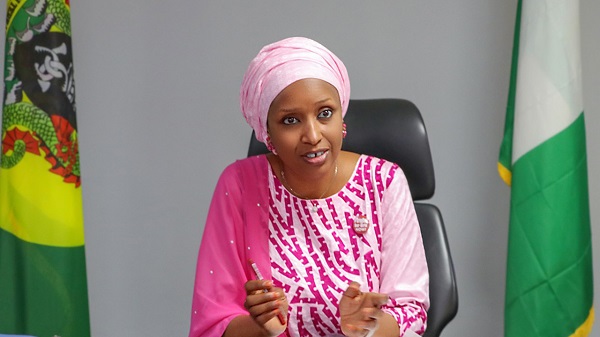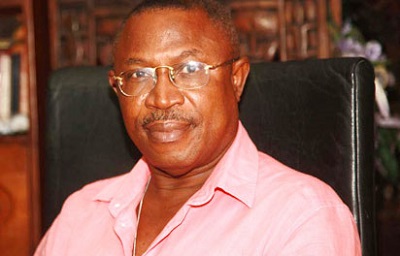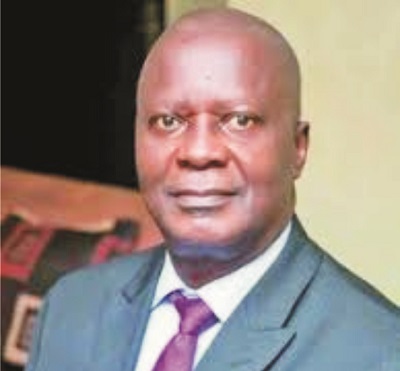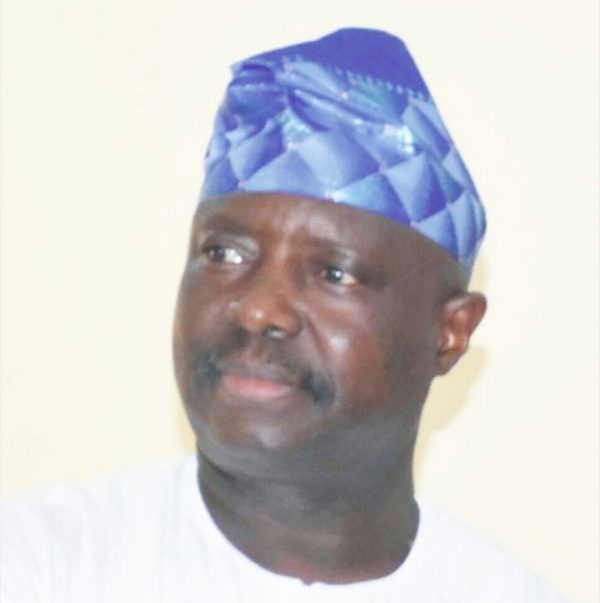New NPA Board Will Prioritize Development Of Deep Seaports – Usman

Ms. Hadiza Bala-Usman is the Managing Director of Nigerian Ports Authority (NPA), she was a guest on Television Continental (TVC), giving insightful views on the nation’s port environment. Enjoy it:
Seaports in Nigeria remained functional amid the Coronavirus pandemic. How did NPA drive operations despite the limitations posed by the lockdown in the country?
We recognized that Nigerian ports are the gateway to the economy and that was clearly stipulated in President Muhammadu Buhari’s maiden speech on the COVID-19 pandemic. The President directed that the ports remain open and functional even during the total lockdown. So, we proceeded with implementing and ensuring that members of staff at the Authority were provided the necessary essential duty cards for movement.
One of the first things we did was to visit all the terminal operators to determine their needs and what had to be done to have them continue operations despite the lockdown. They pointed out the need to have banks open to allow freight forwarders access banking facilities to enable them pay for Customs duties before clearing their goods. We reached out to the Central Bank of Nigeria (CBN) and they immediately enabled the commercial banks within the port environment to commence to receive payment for port services.
We also discussed with the respective stakeholders to find out what they needed to enable them function during the lockdown. We ensured that despite the lockdown the ports remained operational, but there were challenges we faced. NPA had to give up some of its revenue by recognizing that some of the cargo owners were not able to clear their cargoes. We directed the terminal operators to give attendant waivers for rent free period from March 23rd 2020 when the challenges limiting access to the ports began until the lockdown was relaxed. NPA discussed this with the terminal operators and they initially pushed back because they didn’t want to give the waivers. We stood our ground and ensured that the consignees were able to benefit from the free rent period. Most consignees were able to take advantage of this to clear their cargoes from the ports without paying for storage to the terminal operators, but NPA and the Federal Government also gave up a portion of revenue to fill the cushion the fiscal cost on terminals.
What strategies have NPA initiated to ensure that port operations thrive in this post lockdown era, as some issues still impede ease of doing business at the seaports?
We have continued to engage with stakeholders as we recognize the need for efficiency at the ports, so that consignees can clear their cargoes within the minimal time frame. NPA is pushing to ensure that vessels come into the ports and are evacuated in good time. We do have challenges because the waiting time within our ports isn’t the optimum that we would like it to be. We are working assiduously with the terminal operators and Nigeria Customs Service (NCS) to fast track the process of evacuating cargoes from the vessels and also the inspection of cargoes. This is something that is of great priority for NPA and the government. There is a need to deploy scanners at the ports so that cargoes are examined using scanners. At the moment Nigerian cargoes are examined physically. This is difficult and challenging and it also elongates the time frame for cargo evacuation at the ports. Customs officers have to open every container that comes in and this buttresses the need to have scanners.
There is also the need to introduce automation to other aspects of port operations to improve efficiency. NPA had a challenge with one of the biggest terminals in the country, APM Terminal in the last three months over the standard of equipment. However, the terminal has complied and imported the cranes and other equipment needed for fast evacuation of cargoes. We need responsible terminal operators that would abide by the terms in the concession agreement.
With APM Terminal you can see that they have complied and they are working with NPA to improve efficiency which would translate into enhanced and expeditious cargo evacuation system for consignees at the ports.
The Eastern ports have also recorded an increase in traffic after the lockdown. Can NPA sustain this momentum?
Yes, NPA’s intention is to not just sustain the traffic at the Eastern ports but actually increase it. In the last one year, we have had an increase in the volume of cargoes at the Eastern ports. This is attributable to the Authority accommodating the needs of vessel owners. We have given discounts to encourage vessel owners who patronized the Eastern ports. We reached out to know their concerns and challenges and these have been addressed, resulting to an increase in volumes at the ports. We have witnessed huge container vessels that never visited these ports now calling at Onne port and they do that bearing in mind the challenges at the port.
NIMASA is deploying their security architecture and that would really facilitate shipping trade and ensure that the Eastern ports get more patronage. Some of the challenges of vessel owners and shippers at the Eastern ports are attributable to the security concerns. They have armed guards escorting the vessels every time there is a voyage to the Eastern ports. We believe that before the end of this year NIMASA would have completely deployed the security architecture and it would go a long way to enhance what we have already done at the Eastern ports.
A new NPA board has just been inaugurated. What are the expectations?
We are very excited and the expectation is to sustain what is already in place. We believe that the dynamism that the board has would improve NPA’s performance in terms of revenue and operational efficiency.
We would be having the inaugural board meeting within the next two weeks but the goal is to keep pushing forward to ensure that Nigerian ports are more competitive even as we drive the reforms around providing an enabling environment for new deep seaports to come onboard.
One of the concerns that make Nigerian ports in totality non-competitive in relation to ports in neighbouring countries is the absence of deep seaports with draft of about 16m-17m. With the economies of scale in shipping encouraging larger vessels, the world is going in the direction of deep seaports but that is absent in Nigeria. We are going to work with the new NPA board to ensure that the deep seaports in the pipeline get completed in a timely manner.
What adjustments have been made in port operations under the new normal following the COVID-19 pandemic?
This new normal of face masks, social distancing, among others have been challenging to everyone in the port environment. The port is a place where there are always lots of activities that need to be done in an efficient manner. NPA pilots have been briefed on how to conduct themselves while boarding vessels that come into Nigerian ports. They have also been provided with the necessary Personal Protective Equipment (PPE) to ensure they are protected as they go about their duties.
We put in place a Standard Operating Procedure (SOP) in compliance with the Nigeria Centre for Disease Control (NCDC) and Port Health guidelines. These guidelines provide clarity on how crew that come aboard into the country are treated while recognizing the need to protect the ports and the environment in totality. So, these are some of the things we are doing, even as we ensure that our personnel maintain the social distance. For some operations we previously did in person, we now do them virtually just like we are having this interview.
You have spent four years as Managing Director of NPA. How would you describe the experience?
It has been very interesting and very challenging in some instances. But overall, it has been a fruitful journey that has seen Nigerian ports move in leaps and bounds. We have seen our revenue generation increase and our contribution to the Consolidated Revenue Fund has been the highest that NPA has ever made.
It has been a productive four years for NPA and the nation entirely. The revenue generating agency has risen up to the challenge and increased its contribution to the Federal Government coffers even as it increased its efficiency.
The perennial traffic gridlock remains a bothersome issue for port users. What should be expected in the latter part of 2020?
With the anticipated utilization of the rail, we can expect an ease in the traffic on the roads. Nigerian ports can’t function optimally if 90 percent of the cargoes are evacuated by road. We must recognize and adopt intermodal transport systems. That is why the Minister of Transportation, Hon. Rotimi Amaechi has been actively pursuing the rail project.
At the moment, the China Civil Engineering Construction Corporation (CCECC) contractors are working on linking Tin Can Island Port and Apapa Port with rail connection and that should be completed before the end of this year. This would ensure efficient cargo evacuation using rail and it is an area that would improve the access into the ports via the roads.
Recently, NPA signed an MoU with AP Moller Capital. They are working on the utilization of our inland waters to facilitate movement of cargoes. So, using this multimodal transport approach would help us achieve decongestion and ease access into Tin Can and Apapa ports.
We also recently concluded the operational modality for Lilypond truck terminal. We would deploy an electronic call-up system linking the Lilypond truck terminal to other truck parks. This electronic call-up system should be deployed within the next two or three months. While we have an intermodal transport system linking the ports, the electronic call-up system would ensure that we have an improvement in the congestion around Tin Can and Apapa ports.








Good if it will be carried. Most countries now run on deep seaports, for better decongestion of port operations.